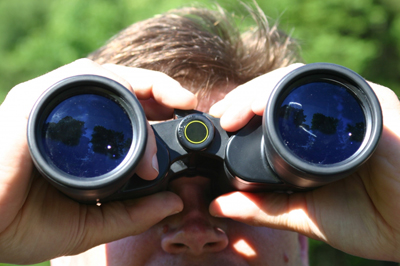Google Glass, piracy and the digital world
24 January 2014 by Admin in Business and finance
2013 saw the addition of a new word to Urban Dictionary – Glasshole (s, n.): An obnoxious, disgustingly rich and/or famous wearer of last year’s controversial gadget-accessory Google Glass.
Google Glass is a voice-activated set of not-so fetching eyewear – simply utter the words ‘OK, glass’ and enter a world of divine gadgetry. By incorporating technology similar to Apple’s Siri (typically found lurking on the humble iPhone and iPad), Google have given Glass users access to a vast factual database: ask for directions; translate a line of Chinese; find out the status of your flight (business class of course)… and if you’re desperate to know just exactly how long the Brooklyn Bridge is, Glass can have the answer in a jiffy (Google is particularly proud of that one).
Surely we’ve all been there: a night out on the town sporting a minuscule (but wholly fabulous) handbag (or perhaps a smaller-than-average manbag, or a large-but-not-quite-large-enough pocket), with as little hope of taking a camera along as squeezing a hyperactive giraffe into the average attic space (to give you an idea, check out the expertly crafted video Giraffe (in my loft) by Weebl’s Stuff). But Glassholes know better. They can nonchalantly fling away their ‘old school’ cameras and video recorders, safe and smug in the knowledge that Google Glass can see, record and share what they see – handsfree (eat your heart out James Bond).
But hold the second mortgage: Google Glass has been somewhat slow to catch on – not least because you can’t simply pop down to your local electronics store to get your hands on one. The prospective Glasshole must sign up to the (we think rather pretentiously named) ‘Glass Explorer Program’ using an online form. Not only that: you must be a US resident, and you must initially be placed on a waiting list among, presumably, thousands or even millions of other aspiring Glassholes. So a select few privileged Glassholes are running rampant among the unsuspecting common folk, and concerns have been raised in the media not only about the average Glasshole’s unfair competitive advantage at boardgames, but more importantly about serious matters such as intellectual property and piracy. Who cares? I hear you cry. Well as content publishers, we do.
Imagine walking into a cinema and recording the entire film just by looking at it. A man recently arrested in Ohio under suspicion of doing just that was afterwards released when officials discovered that his prescription glasses were in fact out of action at the time. A spokesman for America’s Motion Picture Association dismissed the threat posed by Glassholes as (at least for now) insignificant, and one discerning commenter on a related news article noted: ‘A person using a head-mounted camera or Google Glass would have to sit absolutely still for 90–120 minutes in order to produce a viewable video. Imagining that someone is actually doing so and producing a video that would be a viewable alternative is really stupid.’ Stupid or not, perhaps concerns about piracy would be better focused on the ebook and app market, where copyrighted files frequently – inevitably – end up doing the rounds on illegal torrent sites. At an App Developers Conference in Los Angeles last year, a survey revealed that 26% of app developers had been affected by piracy. Disgraceful… (incidentally if you’re looking for a virus-free alternative to torrent sites, why not browse our ebooks on Kindle? We’re usually running a cheeky promotion or two, and they change monthly. We’re launching some fantastic practical apps soon, too, on our splendid website).
So with all the wonderful, low-priced content available in today’s digital marketplace, perhaps the main concern about Google Glass isn’t piracy (avast, me hearties), but personal privacy. We can’t help but feel a little uneasy at the thought of being caught on camera by any Google Glass-adorned Tom, Dick or Harry we happen to encounter after a long day at the office. And we’re not alone. Campaigners at Stop the Cyborgs (no doubt well acquainted with George Orwell’s 1984 and similar visions of dystopia) are condemning Google Glass as just another part of the ‘iron cage of surveillance’ that confines modern society.
But Google is championing its latest bit of kit for its practical capabilities, rather than as a discreet (really?) spying tool. Go to the official Glass website to read ‘explorer stories’ from people who actually put the device to good use and have some inspiring stories to share (we’ll let them off, then). But we won’t forgive the techie boffin who developed Glance for Google Glass, a new ‘sex app’ designed for couples wanting to ‘experience sex like never before’. We appreciate the gesture, but just… no. And just in case you’re itching to know the total length of the Brooklyn Bridge, it’s 1,825 metres. Thanks, Google!

